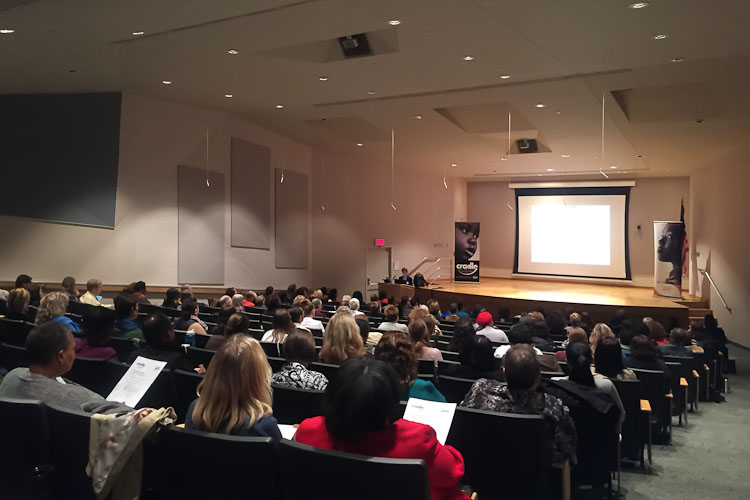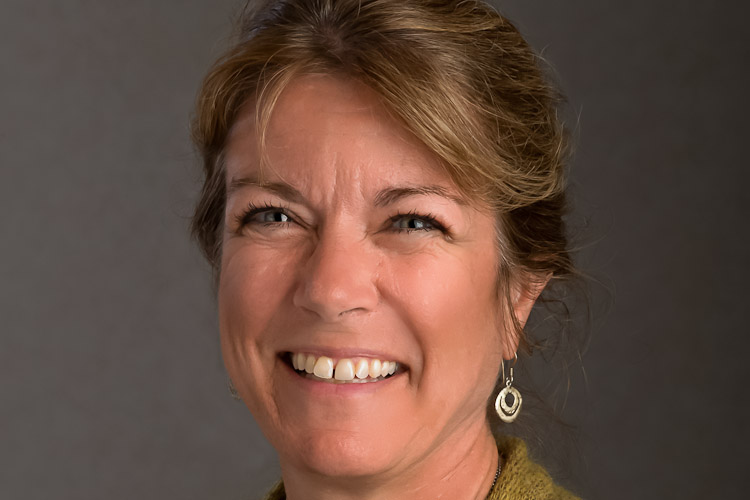Infant mortality disparities in Kalamazoo – a diagnosed sickness and a hopeful treatment
Cradle Kalamazoo will work to bring together those fighting the disparity between black and white infant deaths.
When Grace Lubwama, executive director of the YWCA talked to Second Wave last year about infant mortality disparities and her efforts to tackle it, she called the service fragmentation between agencies “a sickness in Kalamazoo.” And with babies of color dying at twice the national average in Kalamazoo – four times more than white babies will die before their first birthday – Kalamazoo can’t afford a single sick day.
Following two years of strategic conversations and planning between various organizations and community members, a remedy is on its way. Cradle Kalamazoo is just getting off the ground and will serve as a hub that will coordinate care, track data, and provide feedback with the goal of improving birth and maternal and infant outcomes – especially for Black babies and their families in Kalamazoo.
Dr. Catherine Kothari, PhD, was just awarded a $193,000 grant from the United Way of the Battle Creek and Kalamazoo Region that will fund the “data backbone” of Cradle Kalamazoo. Kothari began to learn about health disparities among the maternal-infant population through her evaluation work with Healthy Babies Healthy Start. She says she was very compelled by the information. So compelled, in fact, that when she returned as what she calls a “mature student” to complete her PhD, she zeroed in on those health disparities as a strong research interest.
Kothari was an adjunct professor and researcher at Kalamazoo Center for Medical Studies (the precursor to WMed), and when she completed her PhD, she stepped into WMed’s epidemiology department, where she now sits as assistant professor for Biomedical Sciences and director of the Community Research Section within the Division of Epidemiology and Biostatistics.
Kothari whole-heartedly agrees with Lubwama’s assessment about Kalamazoo’s “sickness” when it comes to service fragmentation. “I agree that there is service fragmentation, and I totally agree that service fragmentation was particularly profound with regard to our institutional, medical, clinical, community services that existed and worked to serve the maternal-infant population and maternal-infant needs,” she says. But, she insists, the blame lies not with the agencies, themselves, but in the funding structures.
“The funding structures dictate relationships and services and how services flow, and it is the responsibility of funding structures to keep an eye on the ripple effect of very well-meaning financial decisions at the federal, state, and local level,” Kothari says. She explains that those funding structures sometimes make it difficult to prioritize families most at need because of the inherent competition for clients and services combined with prohibitive reimbursement conditions. “So part of what we are doing is struggling against financial reimbursement structures that separate services and inhibits coordination.”
Coordinated and early care
That lack of coordination was one of the top barriers that presented itself through those years of strategic conversation and evaluation. “We have a ton of resources… (in) other communities the problem is they don’t have resources. Our community, we have the resources, we’re just not talking to each other and we’re not coordinated,” says Kothari. She says part of the strategic process was building relationships – individually, with community members, and also between agencies.
Through those relationships, Kothari says, they were able to understand the different systems agencies were using and how those systems could affect and perpetuate disparities. A primary, first strategy with Cradle Kalamazoo, in general, is to create a smooth continuum of care for pregnant people by focusing on the care coordination process that would lead to the identification of families early. Kothari says the keys are “coordinated and early.”
The right doses
The lack of connection between agencies meant that some families received multiple referrals and lots of duplication. And on the opposite end of the spectrum were families who were not getting caught within the safety net. Nobody was reaching them.
“So, too many were in some homes and nobody in other homes. The dose was wrong. We had regulate the dosage and make sure that everyone has access to the medicine, basically,” Kothari explains. To remedy the situation, Cradle Kalamazoo is opening up a couple of intensive strategies – case conferencing and a data hub, plus a 224 Baby hotline, which will act exactly like a 211 phone referral resource. And like 211, it will be staffed by Gryphon Place.
Case conferencing logistically means that all home visitation agencies will get together once a week in frontline meetings to talk about processes and procedures. These meetings are a place where service providers can consult with one another between agencies, and share wisdom.
The data hub will collect information on all the individuals and families who are getting referrals to make sure that efforts aren’t being duplicated and no one is being left out. In essence, Kothari says, they are “(closing) some referral loops that often are left hanging open.” The data hub is the focal point of Kothari’s work.
Data Hub’s three components
Kothari notes that the United Way grant isn’t the only funds that are getting Cradle Kalamazoo off the ground. In fact, separate grant funds have been awarded to the YWCA for the coordination and marketing of the program. She calls the YWCA “the backbone and staffing,” and Lubwama, “the heart and soul of the issue.”
Kothari says that the $193,000 grant is to provide the data backbone to the work of the YWCA, and that backbone has three components – a care coordination registry, tracking metrics, and providing feedback. The registry will be a way to track open referrals, lost contacts, and families who are ready to be discharged. Tracking metrics will evaluate where and which people are falling off in the process. Kothari calls this the “QI” (quality improvement) of the system.
“At the end of the day what we’re trying to do is improve birth outcomes and improve maternal access to care, maternal health, and birth outcomes. Those are the things that we’re trying to impact with all of these strategies… and we can’t wait five years to know how we did back in 2010. We need some real-time, ongoing, how are we doing here in Kalamazoo?” says Kothari.
A component of the feedback part of the hub will include a parent survey that will address how families were treated. Because, Kothari explains, “when you have disparities that are so profound, that are related, that cut along racial lines, … if these disparities persist even when all those other (risks) are sort of accounted for, you know what you’re left with is that there are some systematic differences in the way that families of color are experiencing and are being treated in our systems and in our communities.”
Cultural competency as a key component
Because of these systematic differences, Cradle Kalamazoo is being explicit about the cultural competency of their systems and providers. “Being culturally competent is making sure that our systems and providers and community are not making assumptions and are treating people with respect and treating everybody fairly.” In other words, she goes, on, “treat me with respect, meet me where I’m at, help me get where I’d like to go.”
Listening to families’ experiences is one component of addressing cultural competency; the other is deliberately tackling anti-racism work. “It doesn’t happen on its own. The assumptions and structure of ‘business as usual’ is producing the results that it’s producing.” Kothari says they need to change ‘business as usual’ and part of that is beginning to have conversations within agencies and service providers about race and racism and the way that these implicit biases are affecting outcomes in our community.
Kothari is energized and inspired by the response of the community and the agencies that serve Kalamazoo, which is why she feels hopeful and optimistic about the work. “We have an amazing community. The response of institutions and agencies and community members — people are engaged, and really committed, and appalled. They should be appalled and they are appalled… It’s remarkable and I’m very happy to living in this community.”
Kathi Valeii is a freelance writer, living in Kalamazoo. You can find her at her website, kathivaleii.com.
















